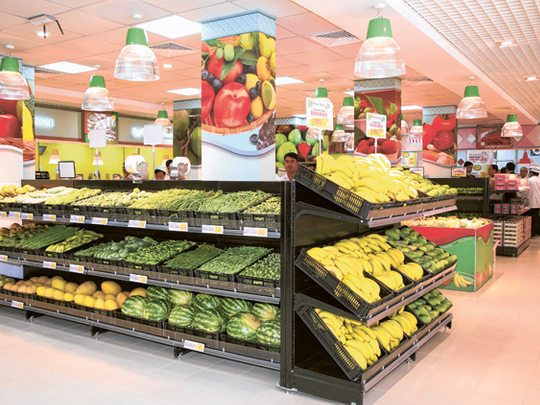
Dubai: The Emke Group plans to create half as many neighbourhood stores in the GCC within the next three years to "add to the 100 super- and hypermarkets it will have in the network.
Three LuLu Express outlets opened last week, including two in Dubai and one in Fujairah. Others are already operational in Abu Dhabi and in Qatar.
The Express outlets will be 10,000 to 20,000 square feet. "With the residential neighbourhoods getting heavily segmented, the Express concept helps us to go deeper into the market," said Yousufali M.A., managing director of Emke Group.
"It's very much along the lines of probability that we will need to create between 40 and 50 outlets in the GCC between now and 2015. To me, it's doable." Investments, based on industry benchmarks, could be in the region of Dh5-Dh10 million.
Incidentally, just the other week authorities in Abu Dhabi unveiled a standard format that the smaller grocery stores in the emirate would need to adhere to.
The neighbourhood store concept, hitherto dominated by the small grocery operator, is the new battleground for the big supermarket chains. Getting locational advantage holds the key to making a mark in this category and the earlier an operator does so, the better off he is for it.
"By embedding themselves into the heart of a newly-created residential community at the earliest opportunity, these operators get a lock in on their daily buying spends," said a retail analyst. "More so as hypermarket shopping is becoming more and more geared towards the weekend."
Such a trend is already noticeable in the mature retail markets and it was only a matter of time before it started showing up in the UAE. How the trend pans out in the rest of the Gulf markets remains to be seen. It will, more or less, depend on fast new residential communities come into being.
"A mini-supermarket is in essence a convenience shop for an area or building," said Robin Teh of Chesterton International, a property consultancy.
"Buyers get their daily needs or make their emergency stops there rather than the bulk buying or the weekly or monthly grocery runs which hypermarkets cater for."
Maintaining a balance
Too much of a good thing can be counter-productive. The truism applies to having too many supermarket operators competing with their mini formats in the same neighbourhood.
"Should there be too many at the same time, the area becomes more competitive which for small businesses is especially hard at a time when the market is still recovering," said Robin Teh of Chesterton International.
"Landlords or business owners need to consider the competitive landscape before deciding on an opening."










